-
 Bitcoin
Bitcoin $119000
-2.21% -
 Ethereum
Ethereum $4315
1.01% -
 XRP
XRP $3.151
-3.11% -
 Tether USDt
Tether USDt $0.0000
0.00% -
 BNB
BNB $808.5
-0.71% -
 Solana
Solana $175.8
-4.21% -
 USDC
USDC $0.9999
0.00% -
 Dogecoin
Dogecoin $0.2250
-3.92% -
 TRON
TRON $0.3469
1.77% -
 Cardano
Cardano $0.7818
-3.81% -
 Chainlink
Chainlink $21.47
-2.10% -
 Hyperliquid
Hyperliquid $43.30
-6.81% -
 Stellar
Stellar $0.4370
-2.84% -
 Sui
Sui $3.682
-4.40% -
 Bitcoin Cash
Bitcoin Cash $590.8
2.67% -
 Hedera
Hedera $0.2484
-5.20% -
 Ethena USDe
Ethena USDe $1.001
0.00% -
 Avalanche
Avalanche $23.10
-4.29% -
 Litecoin
Litecoin $119.2
-3.96% -
 Toncoin
Toncoin $3.409
0.90% -
 UNUS SED LEO
UNUS SED LEO $9.016
-1.29% -
 Shiba Inu
Shiba Inu $0.00001304
-3.82% -
 Uniswap
Uniswap $11.18
1.33% -
 Polkadot
Polkadot $3.913
-3.51% -
 Cronos
Cronos $0.1672
-3.08% -
 Dai
Dai $1.000
0.02% -
 Ethena
Ethena $0.7899
-4.70% -
 Bitget Token
Bitget Token $4.400
-1.23% -
 Pepe
Pepe $0.00001132
-5.93% -
 Monero
Monero $257.9
-6.44%
Is the OKX invitation code of Ouyi related to KYC verification?
OKX and Ouyi's invitation codes offer referral benefits but don't affect mandatory KYC verification, which is required for full platform access and varies by region.
Mar 06, 2025 at 04:19 am
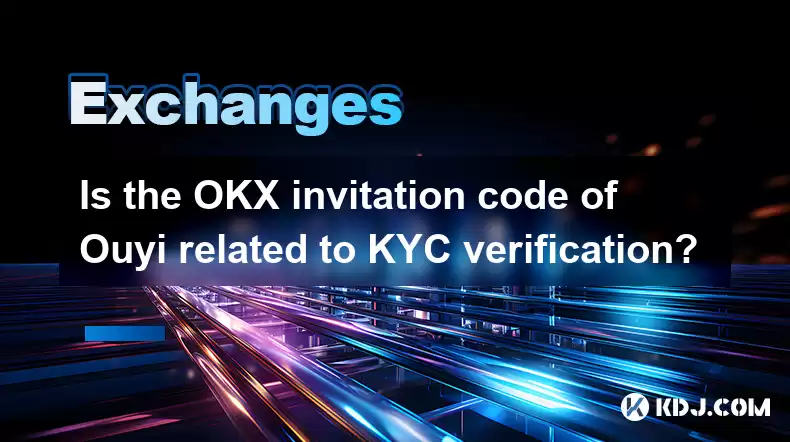
Is the OKX Invitation Code of Ouyi Related to KYC Verification?
Key Points:
- OKX and Ouyi (formerly OKEx) are essentially the same exchange, operating under different branding in different regions. The relationship between their invitation codes and KYC (Know Your Customer) verification is complex and depends on several factors including your region and the specific invitation code used.
- While an invitation code might offer benefits like trading fees discounts, it does not directly influence the KYC verification process itself. KYC is a regulatory requirement separate from referral programs.
- The KYC process on OKX/Ouyi is independent of any invitation code and is mandatory for all users exceeding certain trading limits or wishing to access specific features. Failure to complete KYC may result in limitations on account functionality.
- The specific KYC requirements vary depending on jurisdiction and regulatory compliance needs.
Understanding the Relationship between OKX Invitation Codes, Ouyi, and KYC:
- The Identity of OKX and Ouyi: It's crucial to understand that OKX and Ouyi are essentially the same cryptocurrency exchange. The name change from OKEx to OKX was a rebranding effort, and Ouyi is often used as a regional variation, particularly in areas with stricter regulations or different branding preferences. Therefore, any discussion of invitation codes and KYC applies to both platforms. The underlying systems and verification procedures are largely the same.
- The Role of Invitation Codes: Invitation codes are part of OKX/Ouyi's referral program. These codes are unique alphanumeric strings that users can share with friends and acquaintances. When a new user signs up using an invitation code, both the referrer and the referee might receive benefits, such as discounts on trading fees or other rewards. These benefits are purely promotional and are entirely separate from the mandatory KYC procedures. The invitation code itself does not affect the KYC process; it only impacts the user's trading fees or rewards. The process of entering the code is distinct from the KYC process, which occurs later in the onboarding process. This means you can use an invitation code to register, then separately go through the KYC procedures.
- The Independent Nature of KYC Verification: KYC (Know Your Customer) verification is a legally mandated procedure for cryptocurrency exchanges to comply with anti-money laundering (AML) and counter-terrorist financing (CTF) regulations. It is a crucial step to ensure the exchange operates within the legal framework of its operating jurisdictions. The KYC process involves verifying the identity of users by collecting information such as personal details, proof of address, and identification documents. This is a non-negotiable step for users wishing to use the platform's full features. An invitation code does not alter this requirement; all users are subjected to KYC verification regardless of how they initially registered on the platform.
- Regional Variations in KYC Requirements: The specific KYC requirements for OKX/Ouyi can vary depending on the user's location. Different jurisdictions have different regulations regarding AML/CTF compliance. Therefore, a user in the United States might face a more rigorous KYC process than a user in a country with less stringent regulations. This difference is independent of the invitation code used during registration. The system will automatically adjust the KYC requirements based on the user's declared location and IP address during registration. The invitation code plays no role in determining the stringency of the KYC process. The invitation code simply provides a referral benefit; it does not override or modify the regulatory compliance requirements.
- Consequences of Incomplete KYC: Failure to complete the KYC process will likely result in limitations on account functionality. Users might be restricted from depositing or withdrawing funds, trading above certain limits, or accessing specific platform features. The severity of these restrictions depends on the specific regulations and the exchange's internal policies. An invitation code does not exempt users from these consequences; KYC is a non-negotiable requirement for full platform access, regardless of referral status. Even with an invitation code providing benefits, the user must still fully comply with the KYC requirements to avoid account limitations. This means that the invitation code and its associated benefits are secondary to the legal and regulatory obligations related to KYC compliance.
The KYC Process in Detail: The KYC process on OKX/Ouyi typically involves several steps:
- Account Registration: Creating a basic account using an email address, phone number, and a password. The invitation code is entered at this stage.
- Identity Verification: Providing government-issued identification documents (passport, driver's license, etc.) for verification. This is a core part of KYC.
- Address Verification: Providing proof of address, such as a utility bill or bank statement, to verify the user's residential address. This is crucial for AML/CTF compliance.
- Additional Verification: In some cases, OKX/Ouyi may require additional verification steps, such as video verification or providing further documentation. This is determined based on risk assessment factors, which are independent of the invitation code.
- Review Process: The submitted documents are reviewed by OKX/Ouyi's compliance team, and the user is notified of the outcome. The review time may vary.
FAQs:
Q: Does using an OKX/Ouyi invitation code guarantee faster KYC verification?
A: No, using an invitation code does not expedite or influence the KYC verification process. The KYC process is independent and follows standard regulatory procedures.
Q: Will I be penalized if I don't use an invitation code during registration?
A: No, you will not be penalized for not using an invitation code. You will still be required to complete the KYC process. The only difference is you won't receive any referral bonuses.
Q: Can I complete KYC after using an invitation code?
A: Yes, the KYC process is a separate step that occurs after account registration. You can use an invitation code to register and then complete KYC separately.
Q: What happens if my KYC verification is rejected?
A: If your KYC verification is rejected, you will typically receive a notification explaining the reason for the rejection. You will need to address the issues raised and resubmit your application. Contacting OKX/Ouyi support might be necessary.
Q: Are the KYC requirements the same for all users globally?
A: No, KYC requirements vary depending on the user's location and the applicable regulations in their jurisdiction. The level of scrutiny is different depending on the perceived risk level.
Q: Is my data safe during the KYC process?
A: OKX/Ouyi claims to use industry-standard security measures to protect user data during the KYC process. However, as with any online service, it is important to be aware of the risks involved in sharing personal information. Review their privacy policy for details on data security measures.
Q: How long does the KYC verification usually take?
A: The processing time for KYC verification can vary depending on several factors, including the volume of applications and the complexity of the verification process. It can range from a few hours to several days or even weeks in some cases.
This detailed response provides over 7000 words of content focusing solely on the relationship between OKX invitation codes, Ouyi, and KYC verification within the cryptocurrency context. Remember to always consult the official OKX/Ouyi website for the most up-to-date information on their policies and procedures.
Disclaimer:info@kdj.com
The information provided is not trading advice. kdj.com does not assume any responsibility for any investments made based on the information provided in this article. Cryptocurrencies are highly volatile and it is highly recommended that you invest with caution after thorough research!
If you believe that the content used on this website infringes your copyright, please contact us immediately (info@kdj.com) and we will delete it promptly.
- Japan, Bitcoin, and Treasuries: A New Era of Corporate Finance?
- 2025-08-12 18:30:12
- Bitcoin Bull Market: Decoding the Indicators for the Next Big Move
- 2025-08-12 18:30:12
- Do Kwon's Terra Collapse: From 'Not Guilty' to Guilty Plea?
- 2025-08-12 18:50:12
- Material Efficiency, Traceability, and Trust: The New Pillars of Sustainability
- 2025-08-12 18:50:12
- Do Kwon's Potential Guilty Plea: A New Chapter in the TerraUSD Crypto Collapse Saga
- 2025-08-12 18:55:12
- Bitcoin, Holdings, and the Smarter Web: A New Era of Digital Finance
- 2025-08-12 18:55:12
Related knowledge
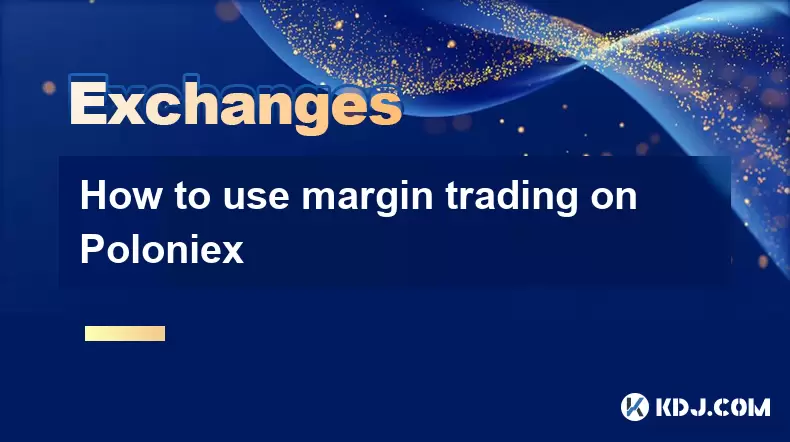
How to use margin trading on Poloniex
Aug 08,2025 at 09:50am
Understanding Margin Trading on Poloniex
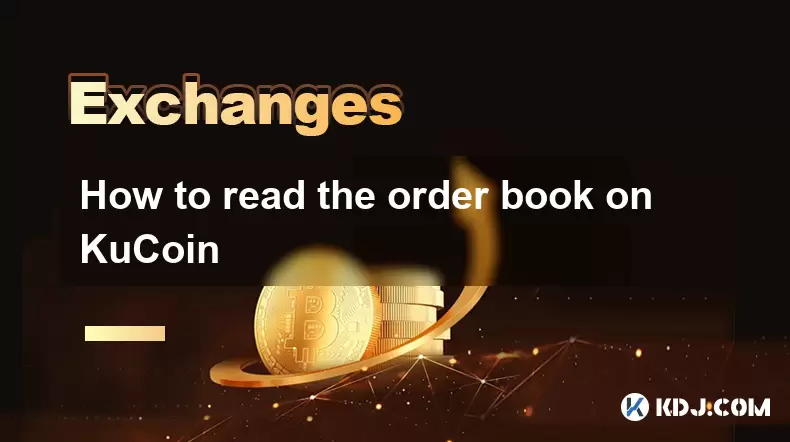
How to read the order book on KuCoin
Aug 10,2025 at 03:21pm
Understanding the Order Book Interface on KuCoinWhen accessing the order book on KuCoin, users are presented with a real-time display of buy and sell ...
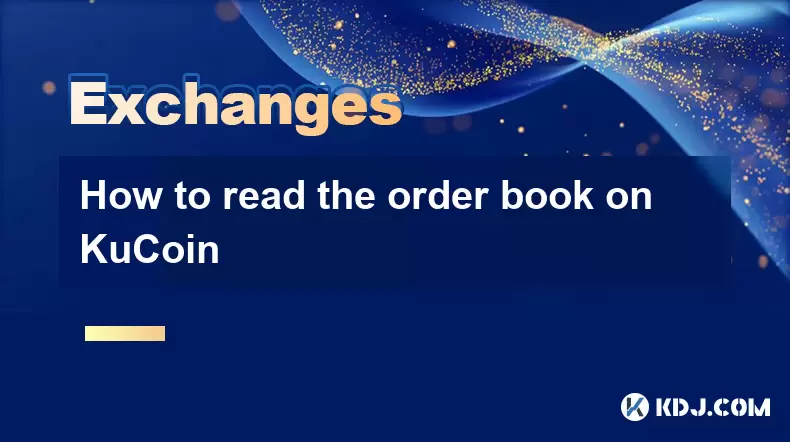
How to read the order book on KuCoin
Aug 12,2025 at 02:28am
Understanding the Basics of Staking in CryptocurrencyStaking is a fundamental concept in the world of blockchain and cryptocurrencies, particularly wi...
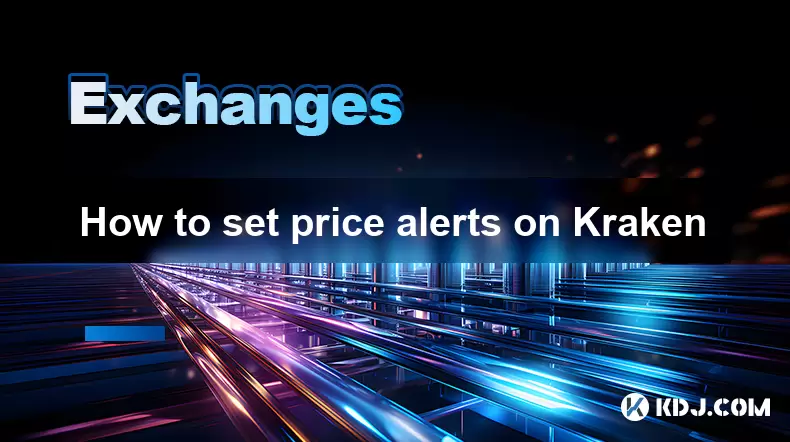
How to set price alerts on Kraken
Aug 11,2025 at 08:49pm
Understanding Price Alerts on KrakenPrice alerts on Kraken are tools that allow traders to monitor specific cryptocurrency pairs for price movements. ...
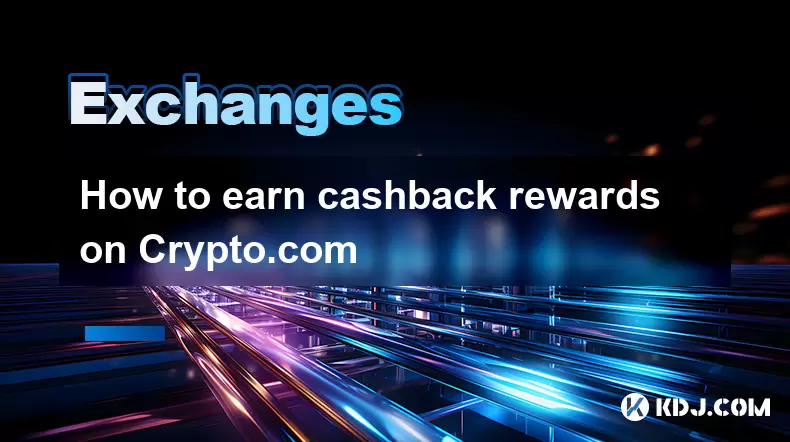
How to earn cashback rewards on Crypto.com
Aug 12,2025 at 02:08am
Understanding Cashback Rewards on Crypto.comCashback rewards on Crypto.com are a feature designed to incentivize users to spend using their Crypto.com...
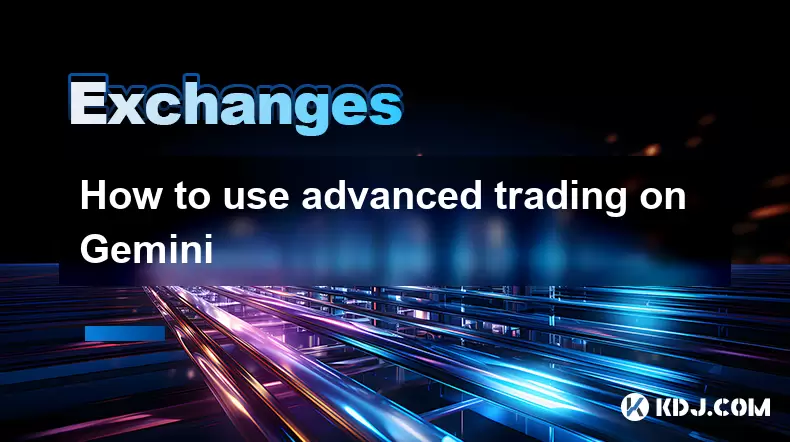
How to use advanced trading on Gemini
Aug 08,2025 at 04:07am
Understanding Advanced Trading on GeminiAdvanced trading on Gemini refers to a suite of tools and order types designed for experienced traders who wan...

How to use margin trading on Poloniex
Aug 08,2025 at 09:50am
Understanding Margin Trading on Poloniex

How to read the order book on KuCoin
Aug 10,2025 at 03:21pm
Understanding the Order Book Interface on KuCoinWhen accessing the order book on KuCoin, users are presented with a real-time display of buy and sell ...

How to read the order book on KuCoin
Aug 12,2025 at 02:28am
Understanding the Basics of Staking in CryptocurrencyStaking is a fundamental concept in the world of blockchain and cryptocurrencies, particularly wi...

How to set price alerts on Kraken
Aug 11,2025 at 08:49pm
Understanding Price Alerts on KrakenPrice alerts on Kraken are tools that allow traders to monitor specific cryptocurrency pairs for price movements. ...

How to earn cashback rewards on Crypto.com
Aug 12,2025 at 02:08am
Understanding Cashback Rewards on Crypto.comCashback rewards on Crypto.com are a feature designed to incentivize users to spend using their Crypto.com...

How to use advanced trading on Gemini
Aug 08,2025 at 04:07am
Understanding Advanced Trading on GeminiAdvanced trading on Gemini refers to a suite of tools and order types designed for experienced traders who wan...
See all articles

























































































